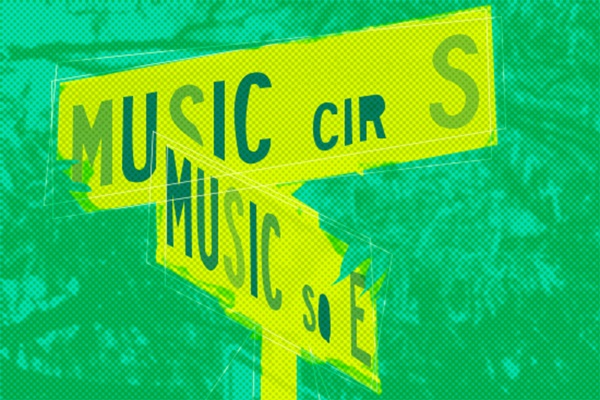Videos by American Songwriter
Steve Songwriter carries his tools (gitbox, laptop, etc.) into the office around 10 a.m., pours a cup of joe, spends the next 20 minutes munchin’ on gratis granola bars and shootin’ the bull with his compadres. A joke inspires good-ol’-boy guffaws and backslaps all around. Glory be! Time for Steve-O to get busy with his collaborator(s) du jour.
By 11, the co-writers have settled on an idea, even though the conversation tends to veer off into sports, cars, pets, kids, spouses, etc. A song begins to take shape as the team brainstorms through patches of exhilaration, self-deprecation, and contemplative silence. Somebody goes out for a smoke and returns with a “sandwich line.” (This pivotal lyrical phrase not only completes the chorus over which they’ve been laboring; it provides permission for a lunch break.) The writers pork out on lard-laden southern grub at the nearest Meat ‘n’ Three, schmooze with their peers, and catch up on the latest Music Row scuttlebutt. By the time they’ve returned to the ol’ grindstone, it’s one-thirty.
By three, after exploring every possible angle for that ornery second verse, the proverbial question pops up, “We don’t need a bridge do we?” The company plugger sticks his or her head in … “to check on how you geniuses are doin’,” inspiring a spontaneous rendition of the work in progress. Maybe the response is, “Man, I wish I had more songs like that to pitch!” Or, if they’re really lucky, the writers will get some candid, usable constructive criticism – about how the second verse doesn’t have enough impact, or daring them to beat that lazy rhyme they thought was good enough. By four, concurring that today’s composition is a sure-fire smash, the co-writers head off for a celebratory happy hour, maybe a showcase, or a pre-dinner, honey-do errand.
Being a Music Row songwriter with a publishing deal may sound like a pretty cushy gig. And, while the above scenario describes a typically pleasant day at the office, writers who assume that’s the sum total of the job invariably end up losing theirs – with no cuts to show for it. Why? For far too many fledgling writers, getting the publishing deal is the pie in the sky. Don’t get me wrong; a company putting American greenbacks at risk to support your writing habit is encouraging and can be an important step toward establishing your cred as a pro writer. However – Spoiler Alert! – a publishing contract in and of itself does not put your songs any closer to the top of the charts.
Realistically, what can you expect from a publisher? Bottom line: a draw, advanced against future royalties, to be recouped at your rate of income. Translation? The publisher’s share of your assigned copyright income is 50 percent. So, if you’ve been advanced $20,000 in the first year and your share of demo expenses amounts to $2,500, your catalog will have to earn double that sum ($45,000) before you begin seeing royalties.
What else might you hope to receive from your publisher? (The word “hope” having been chosen thoughtfully.) You hope they provide you with a home base – a place to write, meet other writers, build relationships, and get up-to-date info as to who’s looking for what kinds of songs. You hope a competent person in the office champions your talents, is accessible, and willing to give you intelligent, honest, constructive feedback.
You hope the company finances some demo sessions. However, I have friends – hit writers, even – who got trapped in deals where they never had a single demo session during the term. This is another reason why I strongly urge every songwriter to invest in a home studio, learn basic engineering, and develop production skills. If I hadn’t taken the initiative to produce a home demo on an 8-track, digital, hard-disk recorder, “My List” would be a long-forgotten echo instead of a former five-week Number One with nearly two million plays.
Why haven’t I mentioned your publisher getting you cuts? It’s simple. Because that’s not something you should ever depend on your publisher to do for you. In fact, the last way one of your songs is likely to make it to the marketplace is through a pitch.
That’s why you hope your publisher will, to one degree or another, manage your writing career – by helping you book quality co-writes with successful writers from other companies. Why? Because associating with name writers and getting several publishers invested can multiply the energy behind a song. You also hope that your publisher helps you book co-writes with up-and-coming artists. Why? Because sometimes that’s how you develop a long-term collaboration with a future superstar – i.e. Kent Blazy and a church janitor/boot salesman named Garth Brooks; or Liz Rose and gangly, 14-year-old Taylor Swift. Or perhaps, you’ll be smart enough to do your own A&R work – like Jon Robbin, who wrote a little love song with a bartender/wanna-be country singer that turned out to be the kid’s first-and-only #1. The bartender? Chris Cagle. The song? “I Breathe In, I Breathe Out.”
Ultimately, whether you’re signed to a publisher or not, creating songwriting success is your job. If you persevere, keep improving your craft, cultivate meaningful friendships, and produce great demos – while never depending on anyone else, even your publisher, to do it for you – you’ve got a real chance.












Leave a Reply
Only members can comment. Become a member. Already a member? Log in.